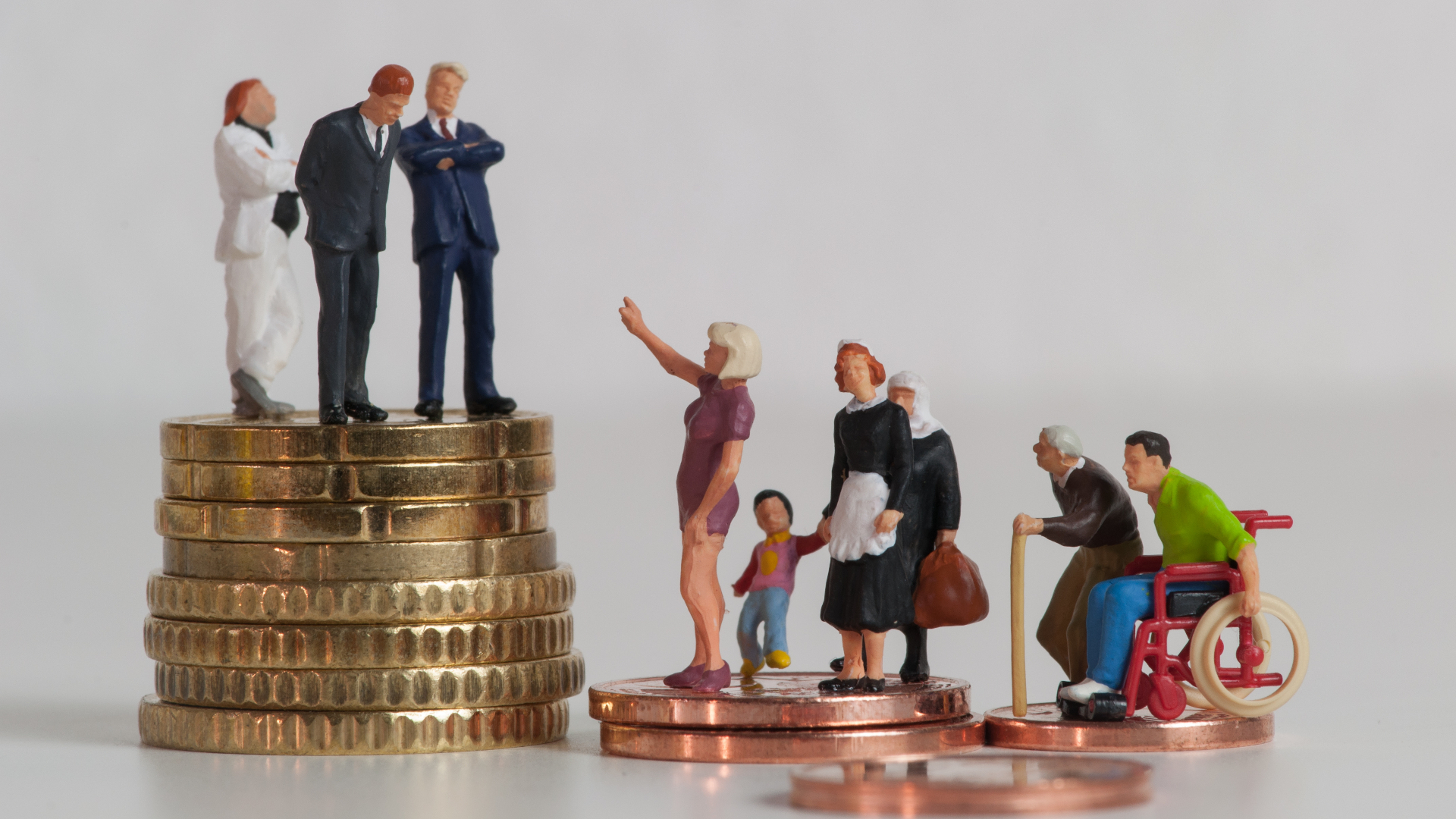Let’s start with a trivia question: What do France and Myanmar have in common?
Believe it or not, in recent years, both have had the exact same levels of income inequality, scoring the same 30.7 according to the World Bank Gini Index.
Despite having this point in common, by almost any other metric, France and Myanmar are very different. France is a developed country with a high standard of living while in Myanmar, which is ruled by a military dictatorship, 40 percent of the population live below the national poverty line.
Moreover, going by the Human Development Index, France’s score of 0.90 puts it in a different league to Myanmar’s 0.58.
So, what does all this mean?
Inequality statistics don’t tell us much
Looking at inequality doesn’t tell us anything substantial about prosperity in a given country. There are far more significant and useful metrics available instead.
In a society where everyone (except the rulers) lived in dire poverty, the level of inequality would be low. This was the case in a number of former socialist countries.
Now, how about a society where almost everyone has enough to meet their basic needs and enjoy a reasonable standard of living, but a section of the population is extremely wealthy? That country would have a much higher degree of inequality.
Which of these societies would be better to live in? If answering honestly, most people would prefer the latter, even though inequality there is more pronounced.
Is inequality the real problem, or is it poverty?
The global reduction of poverty over the past two centuries has been impressive to say the least, although it remains an ongoing process.
In 1820, according to World Bank estimates, 80 percent of the global population lived in extreme poverty. Today, thanks to industrialization, innovation, and globalization, that figure has plummeted below 9 percent.
Obviously, much as it is a huge improvement, that 9 percent is still problematic as it represents the suffering of over 700 million people worldwide.
If further innovation, liberty, and opportunity can enable these individuals to lift themselves out of extreme poverty, is that not what matters most, rather than whether some people still have more than them?
As Thomas Sowell puts it in his book, Discrimination and Disparities, “24 percent of something is larger than 73 percent of nothing.”
Yet, in the realm of economic discourse, the concept of inequality is consistently a major talking point — it is viewed as a great evil that urgently needs to be addressed. For socialists and communists, wealth is a zero-sum game. Instead of seeking to bake a larger pie, those in favor of redistribution seek to simply take away from those they deem to have “too much” pie, regardless of how little pie everyone is left with.
Indeed, for many, reducing inequality is a far greater end to aspire to than reducing poverty. This line of thinking must be challenged if we are to witness the continued eradication of extreme poverty.
Free markets lead to prosperity and social mobility
Free-market economies have historically demonstrated a remarkable capacity for generating prosperity and lifting entire populations out of poverty. The unequal distribution of wealth is often a byproduct of dynamic economic growth, where opportunities for advancement and upward mobility are abundant.
Indeed, varying levels of economic freedom is a crucial factor in the success or failure of countries’ economies. Widespread prosperity cannot be achieved simply by punishing and taking from those who innovate and create wealth.
When we talk about inequality, we look only at the accumulation of dollars. Steve Jobs, Jeff Bezos, Bill Gates, and many other rich people became rich because we willingly gave them our money. And we handed them our money because we liked the goods and services they offered us better than we liked our dollars.
Yet, we ignore the goods and services we received in exchange for those dollars. Whether income inequality is a good or a bad thing depends very much on how it came about.
The issue of inequality — or more so, why inequality is not the issue we should be focusing on — will be an important theme at Students For Liberty’s upcoming LibertyCon International.
Prof. Antony Davies of Duquesne University will take to the main stage to discuss why we shouldn’t fear inequality, but understand and embrace it.
In our video below, Prof. Davies addresses some common misconceptions about income inequality:
Students For Liberty’s flagship annual event, LibertyCon International will be held in Washington, D.C., on February 2-4, 2024. It promises to be the place for engaging with leading experts and connecting with others who share a dedication to advancing pro-liberty ideas and creating a freer future.
Click the button below to sign up for updates and secure your spot at this exciting event. We can’t wait to see you there!
This piece solely expresses the opinion of the author and not necessarily the organization as a whole. Students For Liberty is committed to facilitating a broad dialogue for liberty, representing a variety of opinions.



